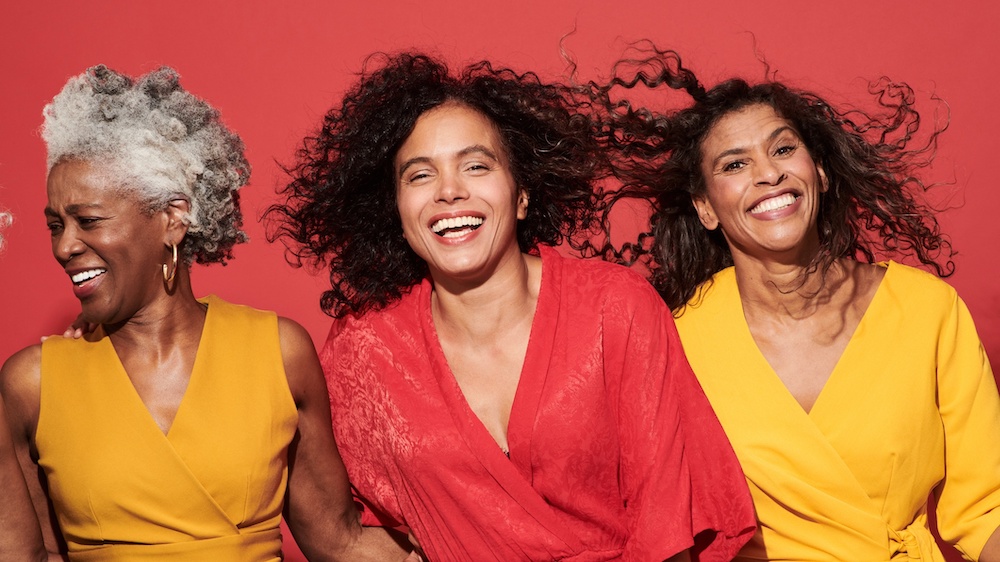If you’re interested in sharing your opinion on any cultural, political or personal topic, create an account here and check out our how-to post to learn more.
Opinions are the writer’s own and not those of Blavity's.
____
I was birthed into this world by a Black woman who nurtured, protected and raised three children. Aside from her, the only other mother figure I had in my life was my sister, a Black woman, seven years my senior. She mothered me and watched over my young brother and I while our mother worked hard to provide for us.
It was through the life of my single mother I learned sacrifice, resilience and faith. It was my sister who exposed me to Black culture. From Martin, to Living Single, R&B, hip-hop and so much more, she shaped me in ways I would not realize until my 30s. My wife of nearly 11 years taught me what it meant to love, support and honor a Black woman. She taught me the meaning of Black love.
My exposure and proximity to Black women wasn’t enough to teach me the important lessons about the intricacies of race and gender in America. As a Black man, I had been socialized to only think about Black people in a monolith. I had no concept of the oppressions of being both Black and a woman nor a sensitivity to the unique experiences of Black women in America. As I finished my undergraduate degree and contemplated graduate school, my focus was on developing programs that would elevate and support the success and growth of Black men. I was being inundated with conferences, national reports and research which centered the incarceration rates and educational equity gaps of Black men and boys.
At the time, I was ignorant of the ways that gender and racial oppression was compounding the realities of Black women and girls. From what I had learned or known about being a Black man, my oppression was to be the primary focus of the collective Black community. If Black people were to continue progress and movement, it would be because of our attention to addressing the most important issue to Black communities, “the plight of the Black man.”
It wasn’t until several years later, after completing my master’s degree and beginning my career as a student affairs educator, that my consciousness around race and gender would be raised. It was in March of 2014 that I picked up a book by Dr. Melissa Harris-Perry, Sister Citizen: Shame, Stereotypes, and Black Women in America. Sister Citizen highlights the intersection of Black women’s experience with racism, patriarchy and sexism from a literary and historical perspective. The book challenged everything I thought I knew about identity, gender, oppression and, most notably, Black women.
I had not previously understood the importance of acknowledging my own privilege as a man. The more I learned about the historical ways Black women had been stereotyped, portrayed and discrimination against, the more I wanted to know. I soon came across a report entitled the “Black Girls Matter Report.” It detailed the ways that Black girls were being pushed out of the education system. It was at this moment I realized there was much for me to learn and understand about Black women.
Women’s History Month presents a unique opportunity for Black men to uplift and empower Black women — a moment to pause for reflection, to honor the unique struggle and progress of Black women in America. It’s a moment to honor them as civil rights leaders, CEOs, elected officials and entrepreneurs, not just as mothers, wives, partners, daughters and sisters. It can be a moment to reflect on the words of Sojourner Truth’s speech, “Aint I A Woman.”
As men, it is not a time for us to stand on the sideline in observation of women celebrating women. We must join in the celebration. Our celebration of Black women must go beyond celebrating the caregiving and gender roles usually assigned to Black women. Our celebration and recognition of Black women must not be limited to March, or even February. Women’s History Month can be, like it was for me, the beginning of us interrogating our own thinking about gender, race and systems of oppression in America.
As Black men, we must not assume that our proximity to Black women will teach us all that we need to know to understand the experience, achievements and challenges of being a Black woman.
